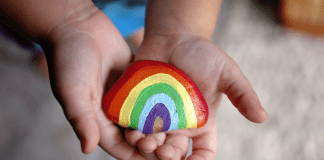“My child could never get away with that!” We don’t say it out loud, but every mother has had a similar thought while at a restaurant or playground. You will see a variety of parenting styles across every setting you are in.
Parent/child interactions play one of the largest roles in shaping a child. It can influence everything from personality to more complex issues that can affect self-esteem and mental health. Parenting styles or “strategies” vastly differ, but they can be boiled down to four main types: permissive, authoritative, uninvolved, and authoritarian.
 Here’s a helpful website for learning more about the pros and cons of each style. And this podcast is another great resource for information on parenting styles if you are interested in learning more.
Here’s a helpful website for learning more about the pros and cons of each style. And this podcast is another great resource for information on parenting styles if you are interested in learning more.
If you are curious about which parenting style you naturally lean towards, this parenting style quiz can help you figure it out!
Permissive
“Kids will be kids.”
Permissive parenting styles, or passive parents, are known to have few rules and boundaries. These parents tend to be warm and emotionally responsive to their children but often can become over-indulgent. They do not say “no” for fear of disappointing their child. This style is child-led and parents hardly ever give or enforce rules. These parents may threaten but rarely follow through with punishments. They may not monitor screen time or their children’s interactions with others. These types of parents like to avoid conflict which oftentimes results in a failure to correct unfavorable behaviors and always giving into the child’s wants.
The positives of permissive parenting are that children tend to:
- Foster secure attachments due to responsive parents
- Be self-assured and confident
- Be more creative, having experienced fewer limits
The negatives of permissive parenting are that children tend to:
- Have trouble following rules and structure
- Encounter more conflict in relationships and social interactions
- Be at a higher risk for feelings of sadness and have trouble with self-regulation
- Have lower academic achievement
Uninvolved
“Do what you want.”
Absent, uninterested, or neglectful. This style can be displayed in parents who are dealing with significant personal issues such as poor mental health or drug abuse. This results in difficulty with being present for their children. This parenting style can also be found in households where parents must work many hours of the day and there is a family-work imbalance. In this style, parents are indifferent to their child’s needs and uninvolved in their daily lives. These parents have low standards and may even fail to provide for basic or emotional needs.
On the positive side, children of uninvolved parents tend to:
- Be self-motivated
- Mature on their own and avoid post-traumatic stress disorder that many children under authoritarian parents tend to have
On the negative side, children of uninvolved parents tend to:
- Have difficulty forming emotional attachments later in life
- Lack direction or goals
- Be exposed/take part in alcohol or drugs earlier in life as they are rarely being monitored
- Be inclined to depression and suicidal thoughts
- Have cognitive delays
Authoritarian
“Because I said so!”
Authoritarian parenting, not to be mistaken for the authoritative parenting style, is a high-expectation, high-achievement style that leaves little room for mistakes and uses punishment to obtain control. This authoritarian style does not prioritize a child’s emotions. Parents often claim their tactics “prepare” their children for real-world situations and assure high achievement. Authoritarian parenting expects compliance without having to explain motives or give reasoning. Parents impose strict rules and give children orders they must follow.
The positives of authoritarian parenting are that children tend to:
- Have a strong moral compasses
- Be able to outline clear goals better
- Desire to do things “the right way”
- Be responsible
The negatives of authoritarian parenting are that children tend to:
- Have difficulty accepting failure
- Acquire lying skills to avoid parental punishment
- Be prone to having more internalizing behavior or low self-esteem
» » » » » » » » » RELATED READ: 5 Parenting Tips for the Strong-Willed Child « « « « « « « « « «
Authoritative
“Let’s talk about it.”
Authoritative parenting is a style, much like the authoritarian style, with strict rules but children feel empowered versus intimidated by parents. Parents are encouraging, approachable, and give guidance using reason. This style is also known as the Democratic approach to parenting. Parents have high expectations but are equally affectionate. Parents are assertive and have clear boundaries. Problems are solved with children, and the goal is for the child to understand why the rule was put into place.
According to experts, this parenting style yields the best outcomes for children.
On the positive side, children of authoritative parents tend to:
- Be more independent
- Have good social skills and cooperate well with others
- Be less likely to give into peer pressure and make decisions they take accountability for
- Handle setbacks and challenges well
- Be more receptive to parents and their rules
On the negative side, children of authoritative parents tend to:
- Develop reliance on rules
- Be introverted
Whatever your style is, it’s important to see what benefits they can bring. It’s also important to note what we as parents should avoid. Different studies have shown parents are more likely to adopt the style they grew up with, so it’s worth stopping to reflect on how each style can impact your child.
Ask yourself: “Was my parent’s style the best way? Is my style the best way? Could I do it better?”
In our household, my husband and I have our own parenting strategies, and often it’s a combination of all four. Our children are seven years apart in age and sometimes need different “styles” at specific points in time, and that’s okay!
A commitment to always being the best parent you can ensures you maintain a positive relationship with your child for years, well into adulthood. I think every parent can agree the end goal is happy and successful children!
The opinions expressed in this post are those of the author. They do not necessarily reflect the official policy or position of El Paso Mom, its executive team, other contributors to the site, its sponsors or partners, or any organizations the aforementioned might be affiliated with.










FYI: Authoritarian Parenting Style-focuses on discipline and control. “Because I said so!”
Authoritative Parenting Style-focuses on limit setting with connection. “Let’s talk about it.”